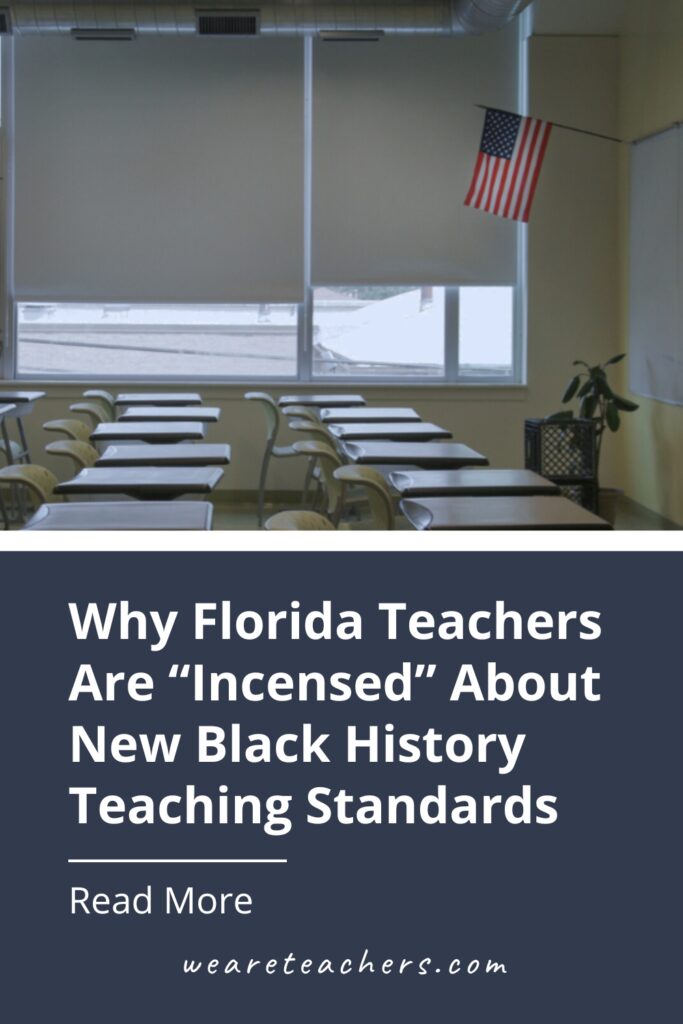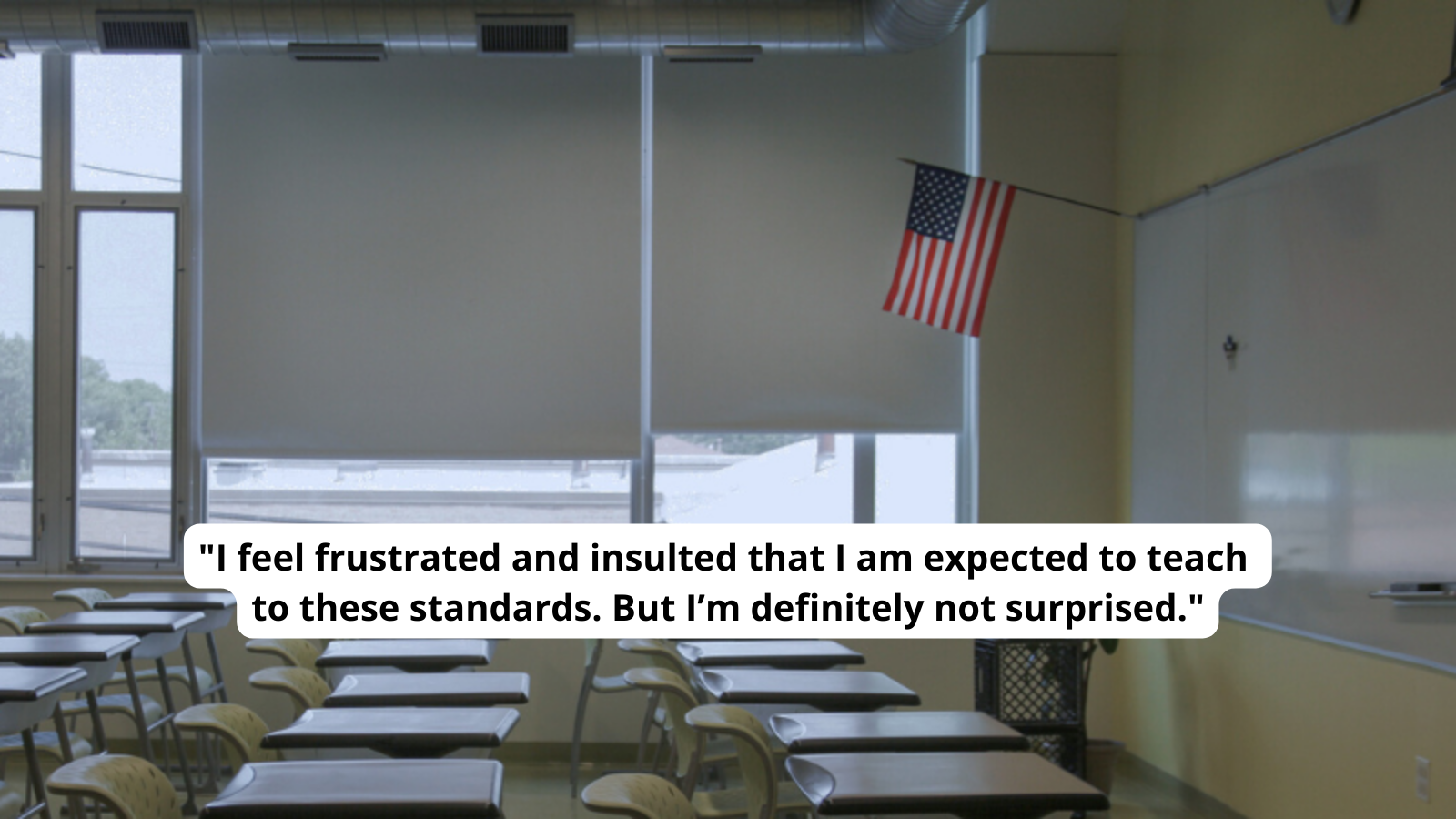The Florida Board of Education is making waves.
On Wednesday, the board approved a controversial new set of Black history standards. These, the board says, allow students to learn the “full truth” of American history.
The standards are the Florida education department’s newest measure to limit or ban discussions of racism in Florida classrooms. Earlier this year, they rejected the African American Studies AP course on the claim that it indoctrinates students with a leftist political agenda. Then, in February, the department moved to ban diversity, equity, and inclusion programs in Florida colleges while mandating Western civilization courses. This is all under Florida Governor Ron DeSantis’s guidance, who uses his “war on ‘wokeness'” to enhance his national standing.
Education and civil rights advocates are critical of the changes. Some of them include:
Changes that suggest slavery was beneficial to those enslaved.
One standard’s note that educators must teach how slaves “developed skills which, in some instances, could be applied for their personal benefit” and to “examine the various duties and trades performed by slaves (e.g., agricultural work, painting, carpentry, tailoring, domestic service, blacksmithing, transportation).”
Changes to include more Black-against-Black violence, whether or not it’s true.
Another standard reads, “Instruction includes acts of violence perpetrated against and by African Americans but is not limited to 1906 Atlanta Race Riot, 1919 Washington, D.C., Race Riot, 1920 Ocoee Massacre, 1921 Tulsa Massacre, and the 1923 Rosewood Massacre.” The 1920 Ocoee Massacre is widely understood to have been perpetrated by a white mob on Black civilians.
Changes that delay discussions of discrimination.
Though Florida students will learn about important figures in Black history, they won’t learn about segregation, discrimination, or slavery until the 5th grade. Florida students will not learn about any modern-day civil rights movements or segregation until high school.
How teachers are reacting:
“History teacher in Florida here.”
“I feel frustrated and insulted that I am expected to teach to these standards. But I’m definitely not surprised.”
“It makes slavery seem like it was beneficial to the enslaved …”
“… rather than telling the truth that families and businesses benefited from the free labor of hostages they kidnapped/human trafficked from Africa.”
“I’m an AICE General Paper/ELA teacher in Florida.”
“Though I don’t explicitly teach history, so much literature and current event topics for the courses are often connected. I’m terrified to say the ‘wrong’ thing, share the ‘wrong’ book, allow students to share ideas the state says are ‘wrong’ … in all honesty, I’m just dreading going back August 4th ![]() Florida reminds me of the ways Germany was slipping into fascism in the 1930s.”
Florida reminds me of the ways Germany was slipping into fascism in the 1930s.”
“I am incensed that I’m expected to teach my 4th graders about Martin Luther King Jr. without being able to explain what he fought for.”
“What am I supposed to say? He just liked marching? If 4th graders are old enough to experience discrimination, they’re old enough to learn about it.”
“I’m a former Florida teacher turned literacy advocate.”
“I left the classroom last year. I am disgusted by the decisions the Florida Department of Education is making. Book banning, censorship, and the voucher system are ruining public education in this state.”
“This is a cheap and cowardly move from DeSantis to prove his ‘anti-wokeness.'”
“I mean cheap literally—it’s an inexpensive campaign move to make him seem like a trigger-happy sheriff in the Woke Frontier. But I’m sad it comes at the cost of students knowing the truth.”
“I have a long, perfect history of faking compliance.”
“When people with little to no teaching experience roll out these kinds of rules, I’ve learned to pretend. They care far more about the appearance of compliance than actual compliance. This will be no different. I will continue to teach as I always have.”
“I will not be doing that.”
“How can our students ever be equipped for the future if they don’t have a full, honest picture of where we’ve come from? Florida’s students deserve a world-class education that equips them to be successful adults who can help heal our nation’s divisions rather than deepen them.”
What are your thoughts on these new history standards? Let us know in the comments.
Looking for more articles like this? Be sure to subscribe to our newsletters to find out when they’re posted!


